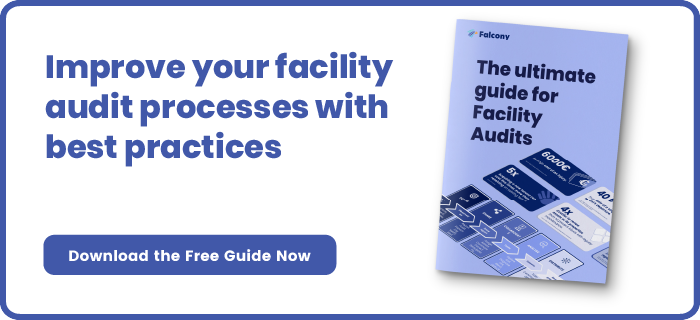6 Most Common Unsafe Acts in Hotels
In the hospitality industry, ensuring the safety of both guests and staff is paramount. Hotels are bustling environments that require diligent attention to health and safety protocols.
Despite rigorous training and established guidelines, unsafe acts can still occur, leading to accidents and injuries. This blog explores the six most common unsafe acts in hotels and how to mitigate their risks.
Common Unsafe Acts in Hotels
Slips, Trips, and Falls in Hotels
One of the most prevalent causes of injuries in hotels stems from slips, trips, and falls. Wet floors, uneven surfaces, and cluttered walkways can create hazardous conditions for both guests and employees.
These incidents can occur in various areas, including lobbies, hallways, dining areas, and even guest rooms. To reduce these risks, hotels should implement a robust cleaning protocol, ensuring that all areas are well-lit and promptly maintained.
Regular inspections should be carried out to identify potential hazards, such as loose carpets or uneven tiles. Additionally, staff should be trained to immediately address any spills or obstructions, and clear signage indicating wet floors or other hazards should be prominently displayed to inform guests.

Improper Lifting Techniques by Hotel Staff
Housekeeping staff often engage in lifting heavy items, such as laundry or furniture. Improper lifting techniques can lead to musculoskeletal injuries, which are not only painful but can also result in long-term health issues.
To combat this risk, training sessions on safe lifting practices are essential. Employees should learn to use their legs for lifting rather than their backs, and to keep loads close to their bodies. Encouraging the use of equipment, such as trolleys or lifting aids, can significantly reduce the physical strain on staff.
Moreover, creating a culture where employees feel comfortable asking for assistance when needed is crucial in promoting a safe working environment.
Failure to Use Personal Protective Equipment (PPE)
In areas such as kitchens and maintenance, the use of personal protective equipment is critical. Failing to wear appropriate PPE, such as gloves, masks, and safety goggles, can expose employees to various hazards, including burns, cuts, and chemical exposure.
Hotels should establish strict PPE policies, making it mandatory for staff in high-risk areas. Regular training should ensure that employees understand the importance of PPE and how to use it correctly. Furthermore, hotels should provide accessible and adequate PPE, ensuring that employees have the necessary resources to protect themselves effectively.
Neglecting Fire Safety Protocols in Hotels
Fire safety is a fundamental concern in any hotel. Unsafe acts, such as blocking fire exits, failing to conduct regular fire drills, or neglecting to maintain fire extinguishers, can have catastrophic consequences.
It is crucial for hotels to enforce fire safety regulations and ensure that all employees are well-versed in emergency procedures. Regular fire drills should be scheduled to familiarise staff with evacuation routes and procedures. Conducting frequent inspections of fire safety equipment, including alarms and extinguishers, is essential to ensure they are in working order.
By fostering a culture of safety and preparedness, hotels can significantly reduce the risk of fire-related incidents.

Inadequate Guest Communication on Safety
Effective communication with guests regarding safety procedures is often overlooked. Failing to inform guests about emergency exits, fire safety protocols, or pool rules can lead to dangerous situations.
Hotels should provide clear information through signage and verbal communication during check-in. Creating informative pamphlets or brochures that outline safety procedures can also enhance guest awareness. Furthermore, staff should be trained to proactively engage with guests about safety measures, ensuring that everyone feels informed and prepared in case of an emergency.
A hotel that prioritises guest communication fosters a sense of security, enhancing the overall guest experience.
Poorly Maintained Equipment in Hotels
Equipment that is not regularly maintained can pose serious risks. This includes everything from elevators and heating systems to kitchen appliances. Poorly maintained equipment can lead to malfunctions that may cause accidents or injuries.
Hotels should develop a comprehensive maintenance schedule, ensuring that all equipment is routinely checked and repaired as necessary. Staff should be encouraged to report any malfunctions immediately, creating an environment where safety is prioritised.
Additionally, regular training on equipment use can help staff recognise potential hazards and operate machinery safely, further reducing the risk of accidents.
Conclusion
Ensuring safety in hotels is a collective responsibility that requires ongoing training, communication, and vigilance. By addressing these common unsafe acts, hotel management can create a safer environment for guests and employees alike.
A proactive approach not only protects individuals but also enhances the overall reputation of the establishment, fostering trust and loyalty among guests. Ultimately, investing in safety measures is not just about compliance; it reflects a commitment to excellence in service and care, ensuring that all who enter the hotel feel secure and valued.
If you're seeking a solution to enhance your hotel's safety and incident reporting practices, Falcony | Observe has you covered. Explore more details on our website or try out our 30-day free trial today:

We are building the world's first operational involvement platform. Our mission is to make the process of finding, sharing, fixing and learning from issues and observations as easy as thinking about them and as rewarding as being remembered for them.
By doing this, we are making work more meaningful for all parties involved.
More information at falcony.io.

Related posts
Highlighting 6 Common Accidents in Hotels
By understanding the most common types of accidents that occur in hotels, hospitality...
7 Most Common Safety Risks in Hotels
Hotels are meant to be sanctuaries of comfort and relaxation for guests, but behind the scenes,...
7 Typical Unsafe Conditions in Restaurants
Ensuring safety in the restaurant environment is essential to the well-being of staff, customers,...



